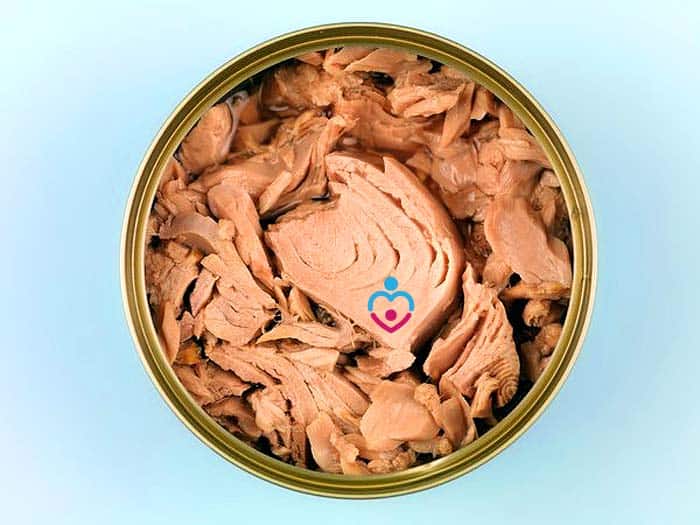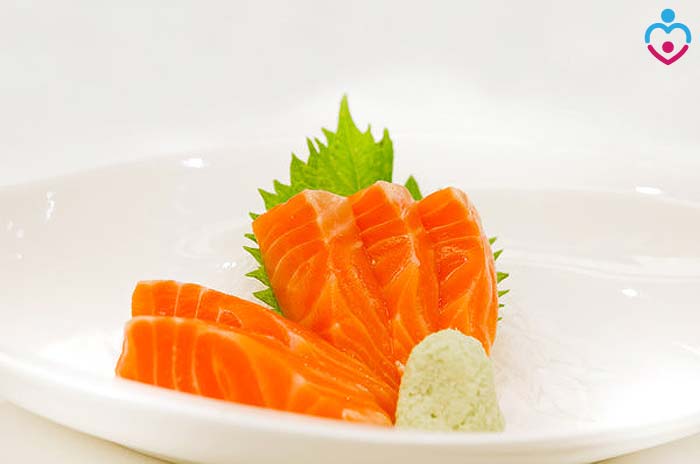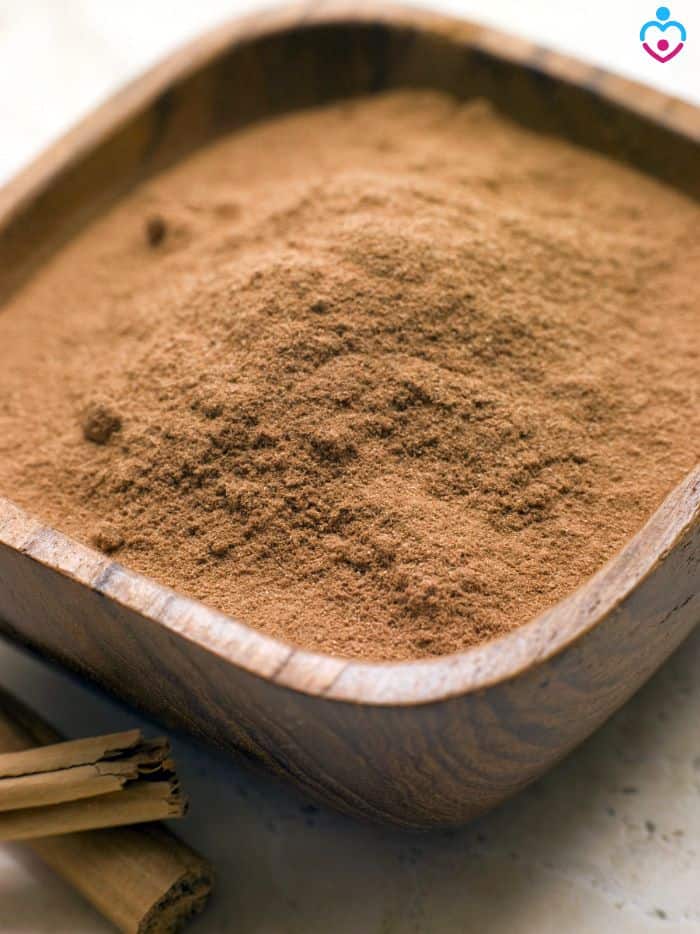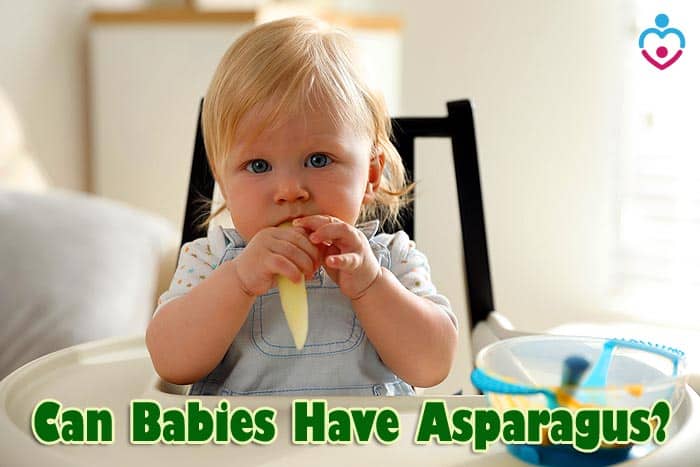
Fish is one of the best foods you can add to your baby's diet. But to get all the benefits from it, you need to introduce the right type of fish to the right age. Can babies have tuna?
On the best types of fish, tuna should be one of your first options. Tuna is rich in nutrients, protein, and minerals that will help your baby develop the right way.
The only worrisome aspect that you need to pay attention to is the level of mercury in tuna, which could be dangerous for babies and pregnant women.
Jump to:
Can Babies Have Tuna?
You can consider introducing tuna to your baby's diet at 6 months of age. This would be soon after you started introducing other solid foods such as fruits and veggies.
However, it is essential to talk to your pediatrician before you dive into adding any type of fish to your baby's diet.
Tuna Allergy in Babies
Common concern parents have when it comes to feeding tuna to their babies is the risk of allergies. You should pay attention to allergy risks every time you add a new dish to your baby's diet.
- When it comes to tuna, some pediatricians consider adding fish to the diet of a baby as early as 6 months can actually prevent allergies.
- The good news is that tuna is not the type of fish that is commonly known to generate allergic reactions in babies. As a matter of fact, it is considered to be one of the healthiest options. The risk of developing allergies is a lot greater with shrimp and shellfish.
- However, you still need to be aware of the potential signs of an allergy so you can identify it in case it happens.
- Common signs of allergies include hives, rashes on the skin, potential swelling of the lips or eyes, difficulty breathing, sneezing, diarrhea, or vomiting.
If you notice that your baby has such reactions after eating fish, you should address your doctor before giving them that fish. But if you try with tuna, the risk is smaller than with other types of fish.
Can Babies Eat Canned Tuna?

You might find it challenging to get fresh tuna every time for your baby. You can find it fresh in the big supermarkets or at the farmer markets.
- But if you don't live close to one of these markets or stores, you will have to consider canned tuna. Canned tuna can be an option, but you need to pay attention to the ingredients.
- If you are going to add canned tuna to your baby's meals, you should choose a type of tuna that is canned in its own juice or some sort of vegetal oil that is not processed.
- If you stay away from canned tuna labeled as tuna salads or other combinations that contain tuna and processed foods, you shouldn't take any risks.
The list of ingredients to canned tuna should be very short, including tuna and some sort of fluid, to preserve it in its canned form.
- The amount of salt in this type of tuna is also something that you have to look at. You want canned tuna with an as little salt as possible.
- Some tuna is canned in different sauces that contain not only salt but also sugar and other conservators that could be dangerous for your little one.
So, stick to the basic type of canned tuna, and you shouldn't have to worry about any potential health risks. As a matter of fact, the FDA and EPA consider canned tuna as one of the best options for babies.
Best Fish for Babies

With so many types of fish on the market, you might find it confusing when it comes to choosing the best one for your baby. Not all fish is just as safe, and not all of them are recommended for babies.
- As we mentioned, tuna is one of the best options you can choose for your baby. It has a low risk of allergies compared to other fish, and it is rich in protein, B vitamins, and omega-3 fatty acids.
- Salmon is also an excellent option for babies as long as you choose it from a reliable source. Salmon has a higher level of fat, and therefore you might include it in your baby's diet with less frequency than other fish.
- While you can serve them tuna or other types of fish 2 to 3 times a week, salmon is enough for 1 meal a week.
- Salmon is low in mercury, which makes it an excellent option for your baby and a safer one, compared to other types of fish.
Other types of fish that are coming with a low level of mercury are trout and herring. Both trout and herring are rich in DHA, which is excellent for brain development. Also, you can choose to give your baby cod, shrimp, pollock, scallops, or lobster without having to worry about significant side effects.
Just as there are types of fish you should include in your baby's diet, there are also types of fish you should avoid due to the high level of mercury they contain.
For instance, raw shellfish is not recommended for babies. The risk of food poisoning is too high with raw fish, and therefore, it should be avoided.
Other types of fish that you should avoid are shark, marlin, or swordfish. These types of fish are high in mercury, and it will come in between the development of your baby's nervous system.
- Tuna
- Salmon
- Herring
- Cod
- Lobster
- Sardine
- Shark
- Marlin
- Swordfish
- Raw Shellfish
- Mackerel
- Tilefish
Top 6 Tuna Recipes for Babies
Now that you know that you can give your baby tuna, you should learn how to prepare this fish. Canned tuna is easier to include in your baby's diet as it can become part of many recipes.
We have gathered 6 of the healthiest recipes you can prepare for your baby, including tuna.
1. Tuna with Yogurt and Avocado Recipe
One of the most straightforward tuna recipes includes only 3 ingredients and requires no cooking.
- All you have to do is blend a can of tuna along with a can or yogurt and one medium-sized avocado.
- Once you obtain a homogeneous cream, you can feed it to your baby.
- This simple recipe is consistent enough to keep your baby full for a few hours and can make for a delicious lunch.
2. Tuna Salad Recipe
You can also incorporate tuna into a salad if your baby is used to eating solids. This might be a great recipe for babies that are close to a year old or beyond this age. And it is effortless to prepare as well.
- For this recipe, you need 1 can of tuna, ¼ cup of whole milk yogurt, 1 tbs of parsley, ½ tbs of Dijon mustard, and 1 avocado.
- Get the tuna out of the can and drain it, so it is completely dry.
- Put it in a bowl and add chopped avocado along with the rest of the ingredients. Mix them together, and you got a very healthy salad for your little baby.
- There is no need to add extra salt to this recipe.
3. Little Tuna Cakes Recipe
This is an exciting recipe, and even if it could be more complicated than others, you shouldn't struggle with it too much. Keep in mind that this recipe is recommended for babies older than 1 year.
- To prepare this recipe, you need a can of tuna, 1 or 2 baby biscuits depending on the size, 1 egg, 2 small potatoes, 1 tbs of Worcestershire sauce, and ½ tbs of onion flakes.
- Start by boiling the potatoes a minimum of 20 minutes. You can try to see how boiled they are by using a fork.
- Once your potatoes are boiled, mash them into a puree.
- Also, smash the biscuit into little crumbs.
- Mix all the recipe's ingredients into a bowl until you obtain an even consistency.
You can create little balls out of this mixture and cook them in butter or oil. If you are preparing this for your baby, butter is always a better choice.
4. Hummus fish cakes Recipe
Another delicious recipe comes from combining fish with hummus. This might sound difficult, but it is actually easier than you might expect.
- You need 1 tbs of hummus and 1 tbs of tuna from a can.
- You will also have to add 1 or 2 tbs of flour, some basil, black pepper, and lemon juice as an optional ingredient.
- You will have to add all the ingredients in 1 bowl and mix them enough to create the texture you are going for.
- Once you get the dough just right, you can spoon it into little balls and fry it in a pan.
- Make sure you fry it evenly on both parts.
- Considering that this dish contains both hummus and tuna, you can be sure that it will be nutritious enough for your baby.
Suggested Reading:
5. Tuna and Rice Recipe
Tuna and rice can make for a delicious and nutritious dinner that is ideal for babies of a minimum of 7 months.
- It is straightforward to prepare the tuna and rice recipe as all you need is 2 tbs of rice, 1 tbs of tuna, 1 tbs of frozen peas, and ¼ cup of vegetable stock.
- You will have to cook the rice like you usually would and place it in a pan along with the tuna and the rest of the ingredients.
- Allow it 5 minutes to cook together and take it off the stove.
- Now your baby's dinner is ready to serve.
You can feed it to your baby like this, or you can blend it for a creamier consistency.
6. Tuna Pasta Recipe
The last but possibly one of the tastiest tuna recipe is the tuna and pasta one. This recipe is also recommended for babies older than 7 months. To make this recipe, you need little ingredients, and preparing it is simple as well.
- Use around 8 oz of integral pasta, 1 and ½ tbs of unsalted butter, 1 chopped onion, 1 tablespoon of flour, 1 and ¼ cup of milk, 1 cup of cheddar cheese, 1 can of tuna, ½ cup of canned sweetcorn.
- Cook the pasta you are using according to the instructions they come with.
- Fry the chopped onion in the heated butter for about 5 to 6 minutes until it gets soft and glassy looking.
- Add the flour to the pan and keep mixing it. Once the flour and onions are mixed together, start adding the milk while you keep stirring.
- You will notice that the mixture converts into a thick sauce.
- When the sauce is thick and consistent, turn off the fire and add the cheddar cheese.
- Keep mixing everything until the cheese blends in with the rest of your sauce.
Add the pasta on a plate, add the tuna from the can and finally, add the sauce. The dinner for your baby is made, and you can be sure that they will love it as it tastes delicious!
How Much Tuna Can A Toddler Eat?
While tuna is a healthy choice for your baby, it is essential to know that they don't need to have it every meal or even every day. As a matter of fact, the FDA recommends feeding your baby about 3 portions of fish a week. They don't need more than that, and this is even the recommended portion for an adult.
Cooking the fish correctly and purchasing quality fish are also essential aspects that you need to keep in mind. You shouldn't overfeed your baby with fish due to the pollutants and mercury in it.
While there are better options for fish, keep in mind that too much of it can work against the right development of your baby's nervous system.
Can Babies Eat Tuna in Brine?
Brine tuna, being it in cans or as a dish by itself, is not recommended for babies.
- This is too salty for their health, and even if they might like the taste, you should avoid it at all costs.
- Salty foods can be dangerous because your baby's kidneys are not well developed to process it.
- It is equally important to not add any extra salt to your tuna recipes. This is especially important if you use canned tuna as this tuna usually comes with a certain amount of salt anyway.
When Can Babies Have Shellfish?
Shellfish might be another option you consider to give your baby as you introduce different foods to their diet. If you can give your baby fish from 6 months, you will have to wait until 12 months to give them shellfish.
Also, even after your baby is 1 year old, you will have to pay attention to what shellfish you give them and how you prepare it.
- Shellfish is one of the most common types of fish when it comes to allergies.
- The allergy risk is the main reason you should postpone giving shellfish to your baby.
- Due to the risk of allergic reactions, some pediatricians recommend you waiting as long as 3 years before giving your baby shellfish.
- Ultimately, the decision will be up to you, but waiting until they are 3 years will reduce the risk of an allergic reaction significantly.
However, you should also consider the history of your family in terms of allergic reactions. If you have close relatives that suffer from allergies or if you as the parent have such reactions to certain foods, you might want to postpone the shellfish to up to 3 years and even beyond that.
A great tip that most pediatricians will give you is to make sure that your baby eats fruits, veggies, and meat before you add seafood to their diet. This will help them develop their digestive system and be more immune to potential allergic reactions.
Tuna and other fish bring a lot of benefits to your baby's development and nutrients they can't get from any other type of food. But you have to feed it to them correctly and keep an eye on the potential allergies they might develop.
Most babies are okay with eating tuna, salmon, cod, or other types of fish as soon as they start enjoying solid foods.
However, others are more sensitive to fish and seafood, so you will have to introduce such foods with caution. Talk to your pediatrician when you notice any side effects and if you second guess your opinions.
![]()
Key References
- "Fish and shellfish - NHS". Accessed July 05, 2020. Link.
- "Foods to avoid giving babies and young children - NHS". Accessed July 05, 2020. Link.






Leave a Reply